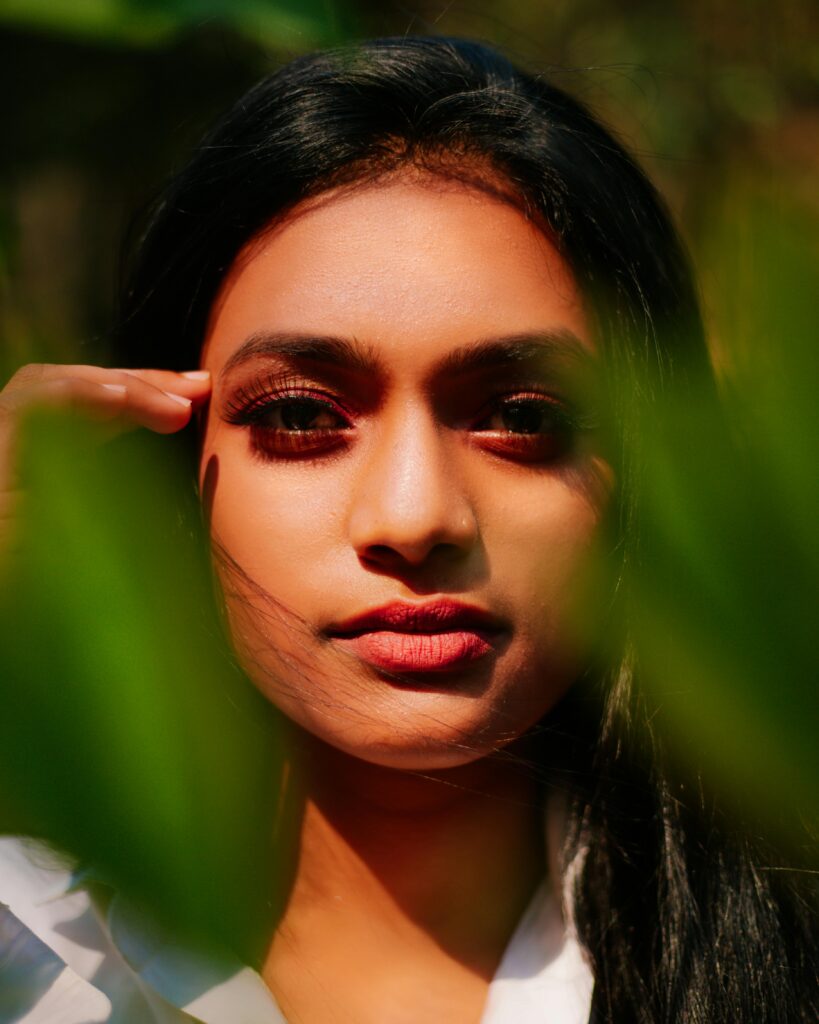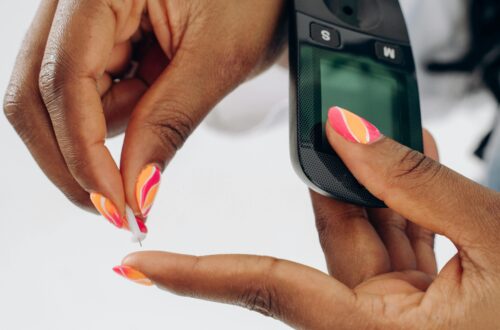Honouring Our Tones: A South Asian Reflection on International Skin Pigmentation Day
Today, the 25th May, marks International Skin Pigmentation Day – a day that invites us to raise awareness about skin conditions like hyperpigmentation, melasma, and vitiligo, and to spark more honest conversations about colourism, confidence, and cultural healing.
For South Asian women, skin pigmentation isn’t just a dermatological concern – it’s deeply tied to identity, history, and the stories we’ve inherited from generations before us. Many of us grew up in households where fairness was praised, and darker skin tones were quietly – and sometimes not-so-quietly – judged. This legacy leaves an imprint far deeper than the surface of our skin.
On this day, we hold space for those struggling with skin conditions, and also those still carrying the weight of colourism. It’s time to move from shame to celebration – and to equip ourselves with both knowledge and compassion.

Understanding Skin Pigmentation: What It Is and Why It Happens
Pigmentation refers to the colouring of the skin. Our bodies produce melanin through cells called melanocytes. When these cells are damaged or become unhealthy, melanin production can be affected, resulting in darker areas (hyperpigmentation) or lighter areas (hypopigmentation).
Common pigmentation conditions affecting South Asian women include:
- Melasma: Often triggered by hormonal changes (such as during pregnancy or menopause), it presents as symmetrical dark patches, usually on the cheeks, forehead or upper lip.
- Post-Inflammatory Hyperpigmentation (PIH): Dark marks that remain after acne, eczema, or cuts heal – common in deeper skin tones.
- Sunspots/Freckles: Caused by UV exposure and are more visible with age.
- Vitiligo: A long-term condition where pale white patches develop due to loss of pigment.
These conditions are often misunderstood – and sometimes made worse by stigma or ineffective treatments.
Why South Asian Skin Needs Specific Care
South Asian skin tones (typically classified as Fitzpatrick skin types IV–VI) are more prone to hyperpigmentation because they contain more active melanocytes. This means we tan more easily, but also scar and pigment more readily.
Unfortunately, many mainstream skincare products and treatments are not formulated with melanin-rich skin in mind, often causing irritation or worsening pigmentation.

Practical & Gentle Skincare Tips for Managing Pigmentation
1. Sun Protection is Non-Negotiable
UVA rays can worsen pigmentation. Opt for a broad-spectrum SPF 30+ daily – even indoors or on cloudy days. Look for sunscreens with zinc oxide or titanium dioxide for minimal irritation.
2. Avoid Skin-Lightening Products with Harsh Ingredients
Hydroquinone, mercury, and steroids are often found in “fairness” creams marketed in South Asia. These can cause long-term skin damage, thinning, and rebound pigmentation.
3. Focus on Gentle Brightening Ingredients
Instead of lightening your natural skin tone, aim to even it. Look for:
- Niacinamide: Reduces pigmentation and strengthens skin.
- Vitamin C: Brightens and protects.
- Azelaic Acid: Safe and effective for PIH and rosacea-prone skin.
- Liquorice Root Extract: A gentle plant-based lightener.
4. Treat Acne Promptly
Prevent scarring and pigmentation by managing acne early with non-comedogenic products and targeted treatments.
5. Work With a Culturally Literate Dermatologist
Seek specialists familiar with melanin-rich skin to avoid treatments that could worsen pigmentation (like certain lasers or peels).

Beyond Skincare: Healing the Colourism We Inherited
Pigmentation concerns often become more than a skin issue – they tap into feelings of shame, comparison, and not being “enough.” Colourism within South Asian culture still quietly thrives, from matrimonial ads to media casting.
As a community, we must name it. Challenge it. And raise daughters who know that brown is not just beautiful – it’s powerful.
Let’s unlearn together.
- Don’t comment on someone’s skin tone, especially children.
- Refuse fairness products marketed through shame.
- Uplift brands, artists, and influencers who represent a spectrum of South Asian beauty.
- Talk openly with your friends and family about how colourism has impacted you.
Pigmentation Doesn’t Diminish Your Worth
Whether you’re navigating melasma in menopause, acne scars from your teenage years, or the sting of colourism comments from relatives, please know this:
You are whole. You are radiant. You are worthy of love, visibility, and softness in the skin you’re in.
Below is a Self-Care Skin Checklist designed specifically for South Asian women, followed by a list of Resources for Culturally Safe Dermatology Support.
Self-Care Skin Checklist for South Asian Women
(Gentle support for pigmentation, hormonal changes, and melanin-rich skin)
DAILY SKIN HABITS
- Cleanse gently using a non-stripping, sulphate-free cleanser (especially if skin is dry or sensitive).
- Apply a broad-spectrum SPF 30+ every morning – even on cloudy days or indoors.
- Moisturise with products that hydrate without clogging pores. Look for hyaluronic acid, ceramides, or glycerin.
- Avoid fairness creams or any product with hydroquinone, mercury or steroids unless prescribed.
- Drink 6–8 glasses of water daily to support skin and hormone function.
TARGETED TREATMENTS (3–5 TIMES PER WEEK)
Use serums with gentle actives to brighten and even skin tone:
- Niacinamide (2–5%)
- Vitamin C (L-ascorbic acid or derivatives)
- Azelaic acid (10%)
- Liquorice root extract or kojic acid (natural lighteners)
Exfoliate once a week with gentle chemical exfoliants (like lactic acid or mandelic acid) instead of harsh scrubs.
Use a nourishing face oil or overnight cream rich in antioxidants or bakuchiol (a natural retinol alternative).
MIND-BODY CONNECTION
- Prioritise sleep: aim for 7–8 hours to allow cellular repair.
- Reduce sugar and processed foods to support hormonal balance and reduce inflammation.
- Manage stress through breathwork, yoga, journaling, or mindfulness. Chronic stress can worsen pigmentation.
- Speak kindly to your skin. Avoid negative self-talk. You’re not “damaged” – you’re dynamic.
SEEK PROFESSIONAL SUPPORT IF:
- You’re experiencing persistent melasma, adult acne, or pigmentation that affects your confidence.
- You notice sudden or spreading white patches (possible vitiligo or autoimmune-related).
- You feel overwhelmed by all the skincare advice – sometimes, simple is better.
Resources for Culturally Safe Dermatology Support (UK-based & Online)
Dermatologists Specialising in Skin of Colour:
These professionals understand the unique needs of melanin-rich skin.
- Dr. Ophelia Veraitch (Harley Street, London)
Specialist in pigmentation and hormonal skin issues.
Website: www.drophelia.com - Dr. Anjali Mahto
Consultant dermatologist & author of The Skincare Bible, familiar with South Asian skin concerns.
Website: www.dranjalimahto.co.uk - Skin of Colour Society (Global)
Find articles and research on treating pigmentation and other issues in skin of colour.
Website: www.skinofcolorsociety.org - The Black Skin Directory (also helpful for South Asian clients)
Connects people of colour with dermatologists, aestheticians and clinics across the UK.
Website: www.blackskindirectory.com
Trusted Skincare Brands for South Asian Skin
Gentle, evidence-based, and melanin-friendly:
- Skin + Me (custom prescription skincare via online consultation)
- The Inkey List (affordable and clear actives for pigmentation)
- Dr Sam’s Skincare (dermatologist-developed, minimal ingredient formulas)
- Facetheory (UK-based vegan brand with brightening actives for deeper skin tones)
Final Words from The Sattva Collective
You don’t have to choose between cultural pride and skin confidence. You’re allowed to care deeply for your skin, without chasing fairness or perfection. Your skin tells a story of resilience, life, hormones, sunlight, and heritage. Let’s honour it, not erase it.
International Skin Pigmentation Day is a chance to not only raise awareness, but to reclaim joy in our shades, our stories, and ourselves.
So, this May 25th, take a moment to thank your skin. Protect it. Nourish it. And speak to it gently. It’s carried you through so much.
At The Sattva Collective, we’re committed to fostering conversations that decolonise beauty, elevate wellness, and empower South Asian women to love themselves deeply, from the inside out.



